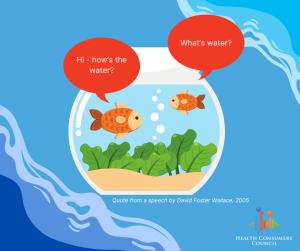WA has been talking about getting an Electronic Medical Record for decades but to date, this has not exactly eventuated.
The first iteration of a digital record in our state came about when the Fiona Stanley Hospital was built in 2013. A newer version of this digital medical record has been in the process of being rolled out across our vast state since 2022. This has been done in preparation for a full Electronic Medical Record.
A project of this scale will require significant investment. During 2022-2023, a Business Case was developed and has now been submitted to treasury for consideration.
In 2021, HCC worked on a Consumer Charter for an Electronic Medical Record. If our state is successful in obtaining funding for the full Electronic Medical Record, there will still be a 10-year process to get a finalised version working in all our public hospitals. That means consumers will still be able to influence the design to ensure it meets our needs, as well as clinician and health system needs.
What do consumers think?
Consumer Involvement
HCC has been funded by WA Health to establish a Consumer Reference Group to help shape the project.
We will run three webinars between now and June 2024, and our Consumer Reference Group will meet four times within that period as well. We aim to build on the work of the Consumer Charter to provide considered feedback about our concerns and hopes for the key elements of an Electronic Medical Record.
We invite you to join us for the webinars; more details will be available soon and we will post the recordings online for those who can’t make it.
Connecting Across our Whole Health System
“Interoperability” – our information able to be accessed by ALL our care team.
An Electronic Medical Record is all your health information from within public hospital walls. Consumers have said they are interested in their private hospital specialists and GPs also being able to access important health information. Linking up residential and home-based aged care services has also been mentioned regularly. This is not the current focus of this program. Our role as consumer advocates is to link in with what is happening at a federal level with My Health Record. Ideally, we can help ensure the consumer ambition to have more integrated care is supported through digital innovations such as a patient portal that links up all our records.
Patient Portals
These are the public-facing part of an Electronic Medical Record – the part we will interact with. This is an area that we need to be able to influence the design of – seeing and changing appointments, being able to message the care team, etc. Continuing to link in with the federal developments of My Health Record will be a key consumer advocacy point.
Data Use, Privacy and Confidentiality
Connecting data across systems is currently very difficult. This makes it difficult for us to know if health interventions are having the health outcomes we seek. An electronic medical record will generate data that could help us better understand the health outcomes being created through our health system. Meanwhile, My Health Record offers us the opportunity to lock down parts of our record, and know who has accessed our record, and we need to understand what might be possible in an Electronic Medical Record.
Patient Reported Outcome Measures and Patient Reported Experience Measures
Known as PROMS and PREMS and aiming to measure the patients’ views of their experiences and health, these measures are being developed in a piecemeal fashion in different areas of health and different parts of Australia (and the world). They will be part of the Electronic Medical Record and we need to be part of the conversation about what measures are used or developed.
Care Pathways – Sandwich or Biscuit?
Care pathways are informed by a number of factors, including evidence from clinical practice, research, and service improvement projects. These are a description of the best evidence informed care that consumers can expect. They are not meant to de-personalise care, rather care pathways are “guard rails” to support safe and high-quality care. These too will be encoded into the My Health Record and will require a coming together across WA’s public health system to agree on these. For example, if you are receiving diabetic care and experience low blood sugar in one part of the health system, you may be offered a sandwich. If you are in another part of the health system you may be offered a biscuit. How these are harmonised and developed across the state requires consumer input.
Pip Brennan, Consumer Consultant, February 2024





